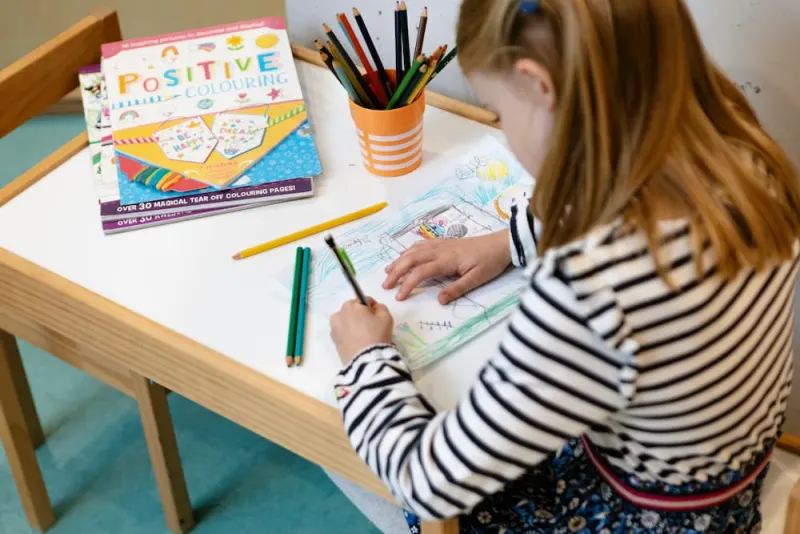Did you know that the earlier cognitive issues are identified and understood, the better the outcome? According to Alzheimer’s Research UK, nearly 982,000 people in the UK are living with dementia. Memory loss, confusion, getting lost in familiar places, or changes in language aren’t just ‘normal ageing’ - so how can you support your brain health? Dr Julia Hannon, Clinical Lead & Clinical Psychologist at The Edinburgh Practice, explains the Memory Clinic’s approach, including assessments, brain health advice, and lifestyle changes that genuinely make a difference.

What is the Memory Clinic?
The Memory Clinic is a clinical service which offers fast access to multi-disciplinary assessment and treatment for memory and cognitive difficulties which may be due to a range of underlying causes. We accept referrals for adults aged 18 and above, and each case is carefully reviewed by me. I am also involved in assessing clients who refer to the practice with cognitive difficulties, including potential memory difficulties.
Why did The Edinburgh Practice launch this service?
I developed a passion for working with people with dementia when I was a Trainee Clinical Psychologist. I had a fantastic supervisor who was an inspiring mentor for me. I saw how valuable neuropsychological assessments could be in establishing whether an individual may have dementia and if so which type of dementia. I love being able to provide a detailed assessment for people in a way which is therapeutic and compassionate. It’s an amazing, accessible service for anyone concerned about memory or cognitive issues, to ensure quick diagnosis and appropriate treatment.
Common reasons people visit the memory clinic
Clients come to the Memory Clinic for many reasons, see some listed below. But it’s important to remember that there are a variety of potential explanations for cognitive difficulties which can also include factors such as medication side effects, menopause, anxiety, stress, depression, sleep problems, pain and more.
- Dementia assessments
- Post-head injury assessments
- Cognitive difficulties related to functional neurological disorder
- Mild cognitive impairment
- Unexplained changes in memory or cognition which require further investigation
Signs of memory-related issues
I’m always keen to dispel myths around ageing and memory! Having mild forgetfulness and a significant memory problem are two very different things. While minor forgetfulness can be normal, significant memory loss and dementia are not a ‘normal’ part of ageing.
Common signs of memory related issues include:
- Getting lost in familiar places
- Repeatedly asking the same questions
- Struggling with instructions or recipes once familiar
- Confusion about time, people, or places
- Difficulty following TV shows, articles, or books
- Changes in language, problem-solving, or visuospatial skills
What’s involved in a memory assessment?

If memory or cognitive changes interfere with daily life, a Memory Clinic assessment can help. Each assessment is personalised but typically includes a 90-minute consultation with a Consultant Psychiatrist, who takes a detailed history and assesses cognitive function. Brain scans (CT or MRI) happen as needed. There may also be a detailed neuropsychological assessment with one of our Clinical Psychologists. Neuropsychological assessments involve answering a range of questions and completing some written and practical tasks. These standardised assessments are highly sensitive and very helpful for identifying specifically what areas of cognition are impacted and to what extent. These assessments can help to identify specific underlying causes, such as a particular subtype of dementia.
All of this information is gathered together and analysed by our team. We arrange a feedback session to discuss the findings of the assessment and what the results mean for the individual. This may include providing a diagnosis and/or explanation for what the underlying cause appears to be for any cognitive difficulties identified. Recommendations would also be made at this stage for what would help for example relevant medication options would be discussed, lifestyle adaptations and/or psychological therapy.

Are there any lifestyle changes or practices people can adopt to support better memory?
Yes, absolutely! It’s brilliant that the term ‘Brain Health’ is starting to become mainstream. With latest research from the Lancet Commission (2024) highlighting that about 45% of cases of dementia are potentially preventable by addressing 14 modifiable risk factors across different stages in life, we know that modifiable lifestyle factors have a profound impact on the health of our brain. I’m glad to see that we are now thinking and talking about prevention and we are seeing a shift to focus on identified modifiable risk factors. Our top tips would be…
- Regularly exercise to get your heart pumping (2-3 hours per week)
- Eat a balanced Mediterranean-style diet and manage weight
- Stay socially connected: social contact enhances cognitive reserve!
- Reduce alcohol, stop smoking and use of any illicit substances
- Manage stress and mental health – seek support which works for you
- Aim for 7-9 hours of good quality sleep per night
- Monitor and manage health conditions like high blood pressure and diabetes
- Schedule regular health check-ups
- Treat any hearing impairments
- Reduce exposure to air pollution
- Keep your brain engaged in activities you enjoy – there aren’t specific recommended activities so focus on enjoyment and brain stimulation.
- Protect your brain from physical harm such as head injuries; wear bike helmets, avoid heading footballs!
How can loved ones support someone with memory challenges?
Patience, empathy and providing support in the way the person would like - rather than how you might like! Put the person with cognitive difficulties at the centre of decision making, respect their preferences, needs and values.
Worried about your first visit?
Feeling anxious about a Memory Clinic visit is understandable. I would say it’s normal, you’re only human. I’m sure your nerves will settle when you come through the doors into our lovely practice and meet with one of our warm and welcoming doctors. One of our main jobs is to put you and your
loved ones at ease, so that what may be a worrying or upsetting process is as therapeutic and comfortable as possible for you!

Dr Julia Hannon, (pictured above) is the Clinical Lead & Clinical Psychologist at The Edinburgh Practice, an award-winning, multidisciplinary mental health practice situated in the centre of Edinburgh. To find out more about the egg partner or to book a Memory Clinic Consultation, click here.

